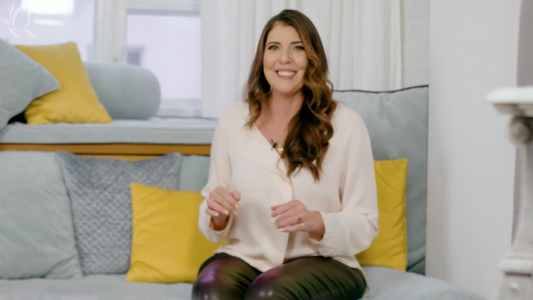
So many lifestyle considerations beyond just diet can impact your health. Sometimes you need to spend a bit of time (and play detective) to figure out what is going on.
Hormone imbalance and many of the challenges women experience in perimenopause or menopause (including packing on the pounds and having trouble getting rid of belly fat) can often be traced back to too much cortisol.
And did you know that too much cortisol impacts your blood sugar levels? And it is your blood sugar levels causing all of that belly fat storage in the first place! Listen to how too much cortisol affects glucose production and your metabolism, increasing hemoglobin A1C and overall inflammation.
So here’s a reminder to all of you “stress-aholics” (aka “cortisol junkies”).
Along with many other negative health impacts it’s going to be difficult to lose that belly fat!
And remember…the problem, of course, isn’t just about trying to fit into a smaller size…you really need to do something before you become insulin resistant and pre-diabetic.
If you are a “stress-aholic” you need to get control over your cortisol levels before it results in high blood sugar, immune system suppression, and a host of other problems. One way to do this is by putting more “O” in your life!
Put More “O” in Your Life!

Oxytocin (our hormone of love and bonding) will help counterbalance cortisol’s negative effects. That’s why I sometimes say that you can “HUG your belly fat away“…hugs are a great way to produce lots of oxytocin! Oh, Yes!
Oxytocin will also nourish your soul and your relationships!
Countering Cortisol with Stress Management and the Power of “O”xytocin!
In all of my hormone reset and healthy living programs participants quickly learn about stress management’s powerful effect on their getting at a healthy weight, staying alkaline and having healthier lab results relating to inflammation markers.
Stress management includes finding ways to improve your sleep quality, in order to reset your natural circadian rhythm.
You can read more about stress management, as well as the key nutrients that I generally recommend to help address cortisol issues and help nourish your adrenals, here. These nutrients help decrease inflammation, support cell membrane integrity and function, and support healthy adrenal function (countering the negative effects of cortisol).
Stress management also means thinking in positive terms and connecting with significant others, including pets (that’s why I hug my dog Sandy! Major stress reducer!)!
To create more Oxytocin in your life:

- Laugh, play, hug, look into someone’s eyes and smile, give gratitude and thanks, play with a pet, and stay in the present (so difficult for many of us). So yes, you can hug that belly fat away!
- Learn to control the stress you can (and learn to manage your thoughts around the stress you simply can’t control). Remember, stress is a normal and actually a healthy part of life when we have perceived control around it and internal peace within it.
- Make a proactive effort to carve out time in each day to connect with others (an easy one? Don’t eat watching the TV!)…
- Remember the “O” in oxytocin also is the “O” in orgasm! Making love is a great way to counter cortisol’s negativeeffects.
Take my fun Oxytocin (secret hormone) quiz to see if YOU are “O”- deficient.
Are you happy with your results? If not you need to incorporate more oxytocin-rich activities into your day…the good news is that all of these are fun and happy things to do!
Do a Little Detective Work!
When it comes to stress management, do not dismiss the stress caused by your everyday feminine discomforts!
The stress of vaginal dryness, urinary leakage and pain can also result in significant impacts to your relationship (even the “relationship” with yourself!). Read about how so many women suffer from negative thinking, confidence and self-esteem issues, due to the natural aging of our “lady parts”! And please know that there are things you can do to help address these issues.




